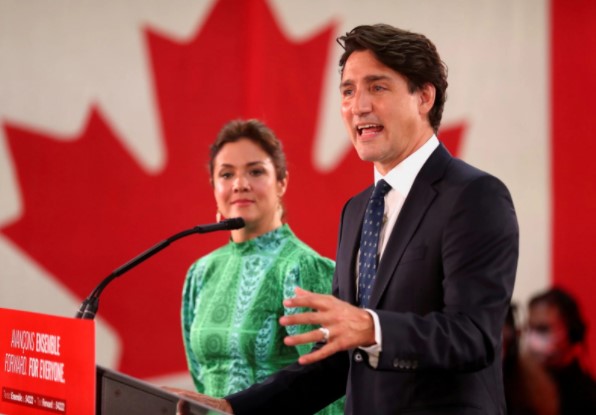×
The Standard e-Paper
Stay Informed, Even Offline

Canadian Prime Minister Justin Trudeau hung onto power on Monday as his main rival conceded defeat, saying he had won a clear mandate to govern although he fell short of his goal for a majority win.
Trudeau, in power since 2015 and governing with a minority of House of Commons seats since 2019, decided to gamble on an early vote and capitalize on his government's handling of the pandemic, which included massive spending to support individuals and businesses and a push for high vaccination rates.